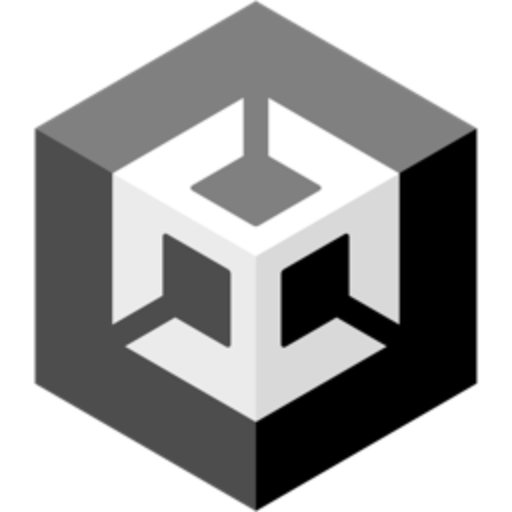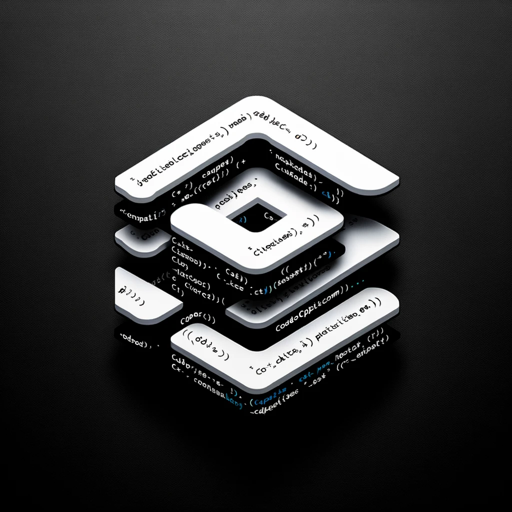Unity Developer (Mobile)-mobile game development guide
AI-powered mobile game development assistant
How can I optimize Unity for better mobile performance?
What's the best way to handle touch input in Unity for mobile?
Recommendations for Unity mobile game development tutorials?
Can you provide a Unity code snippet for mobile-friendly UI?
Related Tools
Load More
Unity Helper
Hi fellow developer! Ready to assist with your Unity coding and game design queries.

Unity ++
Unity and C# Expert with Official Ebooks - 2024

Unity Buddy - C# Programmer for Unity 3D
Provides Senior Gameplay Programming support for Unity 3D Game Development

Unity Mentor (Unity Assistant)
Provides assistance to developers, artists, and creators working with Unity, a popular game engine and development environment.

Unity Helper
Expert C# Unity dev
Unity3D-GPT
GPT for Unity Engine Development
20.0 / 5 (200 votes)
Introduction to Unity Developer (Mobile)
Unity Developer (Mobile) is a specialized expert system designed to provide technical guidance and support for mobile game development using the Unity engine. Its primary purpose is to assist developers in creating, optimizing, and troubleshooting mobile games, ensuring they meet industry standards and perform efficiently on various mobile devices. The system is tailored to address the specific challenges and requirements of mobile game development, offering detailed, practical advice and solutions. For example, Unity Developer (Mobile) can help a developer implement touch controls, optimize game performance for low-end devices, or integrate mobile-specific features like in-app purchases and push notifications.

Main Functions of Unity Developer (Mobile)
Technical Guidance
Example
Providing best practices for implementing touch controls in a 2D mobile game.
Scenario
A developer is creating a side-scrolling platformer for iOS and needs advice on how to implement responsive touch controls that feel natural and intuitive to players. Unity Developer (Mobile) offers step-by-step instructions, code snippets, and tips to achieve this.
Performance Optimization
Example
Optimizing game performance for low-end Android devices.
Scenario
A game is experiencing frame rate drops on older Android phones. Unity Developer (Mobile) suggests techniques like texture compression, reducing draw calls, and using object pooling to enhance performance without sacrificing visual quality.
Troubleshooting
Example
Resolving issues with integrating Google Play Services.
Scenario
A developer encounters errors while trying to implement Google Play achievements and leaderboards. Unity Developer (Mobile) provides a detailed troubleshooting guide, including common pitfalls, configuration steps, and example code to resolve the issues.
Ideal Users of Unity Developer (Mobile)
Independent Developers
Indie developers working on mobile games who may not have access to a large team of experts. They benefit from the detailed technical advice and practical solutions that help them overcome specific challenges and optimize their games for mobile platforms.
Small to Medium-Sized Game Studios
Studios developing mobile games who need to ensure their games run smoothly on a wide range of devices. Unity Developer (Mobile) helps these teams by offering insights into performance optimization, troubleshooting common issues, and integrating mobile-specific features effectively.

How to Use Unity Developer (Mobile)
Visit aichatonline.org
For a free trial without login, also no need for ChatGPT Plus.
Set Up Your Project
Open Unity Hub, create a new project, and select the 'Mobile' template to streamline the setup for mobile platforms.
Install Necessary SDKs
Ensure you have installed the appropriate SDKs (Android SDK, iOS SDK) through Unity Hub or via the external setup to support mobile development.
Configure Build Settings
Adjust the build settings for your target platform (iOS or Android) by navigating to 'File' -> 'Build Settings', then select the platform and configure player settings as needed.
Optimize and Test
Optimize your game by adjusting quality settings, using profiler tools, and testing on actual devices to ensure performance and compatibility.
Try other advanced and practical GPTs
Skripsea by Datasans
AI-Powered Academic Writing Tool

Signal Maximizer
AI-Powered Information Synthesis

Task Project Management
AI-powered project management for efficiency.

Friday
Intelligent AI, personalized for every task.

CodeOptima
AI-powered programming assistant.

Ansys Engineering Simulation
AI-Enhanced Engineering Solutions

Timeline |Cronología
Create detailed timelines effortlessly with AI

100% match Your CV with Job Description
AI-powered tool for perfect CV-job alignment.

Redundancy and Repetition Checker - CE 101
Enhance clarity with AI-driven redundancy checks

Medi Summary Specialist
Effortlessly generate detailed OPD summaries with AI

Rate Me
Unleash AI-powered evaluations for your content.

Storyboard AI
AI-powered storyboard creation tool.

- Game Development
- Performance Optimization
- Mobile Testing
- SDK Setup
- Platform Configuration
Q&A About Unity Developer (Mobile)
What is Unity Developer (Mobile) used for?
Unity Developer (Mobile) is used for creating, optimizing, and deploying games and applications specifically for mobile platforms such as Android and iOS.
How do I start a new mobile project in Unity?
To start a new mobile project, open Unity Hub, create a new project, select the 'Mobile' template, and ensure you have the necessary SDKs installed for your target platform.
What are some tips for optimizing mobile games in Unity?
Tips for optimizing mobile games include reducing draw calls, optimizing textures and assets, using efficient shaders, leveraging object pooling, and testing on multiple devices to ensure performance.
How can I test my Unity game on a mobile device?
You can test your Unity game on a mobile device by building the project for the target platform (Android or iOS), connecting your device to the computer, and deploying the build directly to the device for testing.
What are the common challenges in mobile game development with Unity?
Common challenges include device fragmentation, performance optimization, handling different screen resolutions, touch input integration, and managing battery consumption.